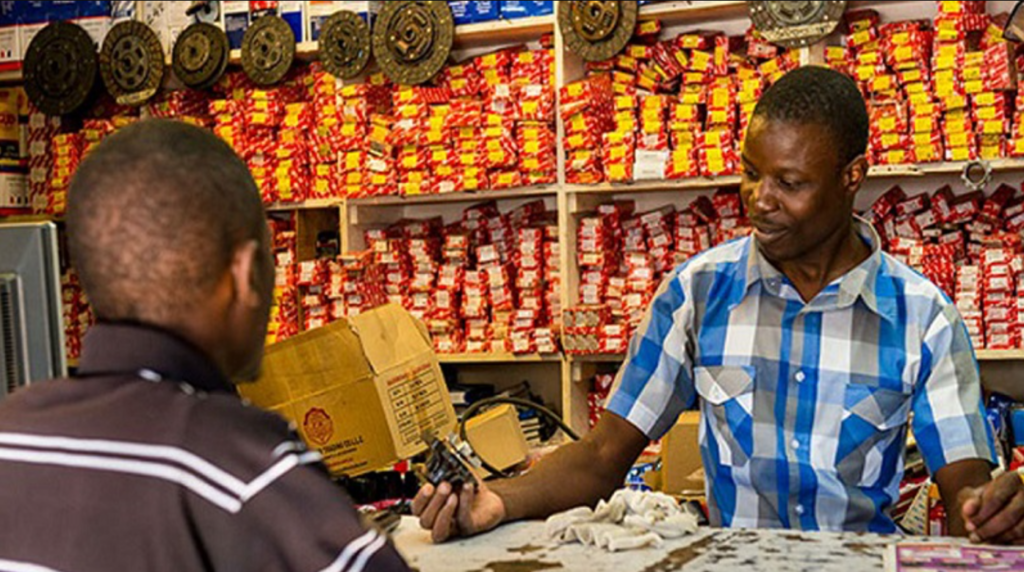Unemployment motivated 51.6% of business owners in Nigeria’s informal sector to start their ventures, according to the 2024 informal economy report by Moniepoint.
Based on data from over two million businesses in Nigeria, the report also notes that 35.9% of individuals started businesses because their formal employment was not providing enough income.
Interestingly, only 2.8% of these businesses were started out of passion, and 3.8% were inherited.
The report read in part: “Nigeria is home to approximately 40 million MSMEs, of which almost 90% are in the informal economy.
“The informal economy, also known as the shadow economy, comprises businesses that are typically described as untaxed and unregistered. And it is all around you: your family, neighbours, and even friends who have side hustles to supplement their income. This report weaves critical data, insights and expert perspectives to illuminate and help you understand Nigeria’s shadow economy.”
The report further reveals that more than half of the informal economy’s population is under 34 years old, with the largest group (43.1%) aged between 25 and 34.
This age group is followed by those aged 35-44 years, who represent 28.9% of informal business owners. Younger individuals aged 18-24 years account for 14.4% of these businesses, highlighting a significant participation of the youth in the informal economy.
The 45-54 years age group comprises 10.0% of informal business owners, while those aged 55-64 years and 65 years and over constitute smaller proportions of 2.8% and 0.6%, respectively.
Also, women account for only 37.1% of the informal economy population in Nigeria, with men dominating the sector at 69.9%.
The monthly profit distribution of businesses in the informal sector in Nigeria shows that a vast majority of these businesses earn relatively low profits.
Approximately 90% of these businesses make less than N500,000 monthly profit, with only a small fraction earning over N2.5 million.
Specifically, 79.4% of businesses report monthly profits of less than N250,000. This is followed by 10.3% of businesses earning monthly profits between N251,000 and N500,000, indicating a slight increase in profitability for a small portion of businesses.
Further up the scale, 6.6% of businesses have monthly profits ranging from N501,000 to N1 million. A smaller fraction, 2.3%, report monthly profits between N1.1 million and N2.5 million. Only a very small segment, 1.3%, have monthly profits exceeding N2.5 million.
The report also highlights that 8 out of 10 businesses in the informal sector have been operational for less than 5 years.
Retail and general trade, alongside food and drinks, account for over half of the value of Nigeria’s informal economy.
Retail and general trade represent 38.4% of the sector, while food and drinks account for 15.2%.
Other notable categories include oil and gas (9.6%), IT/electronics (6.9%), construction (5.9%), and agriculture (4.6%).
The spending patterns of business owners in the informal sector in Nigeria indicate that a significant portion of their profits is allocated towards personal and family needs.
Specifically, 68.2% of business owners state that feeding and family expenses are their primary expenditures.
Breaking this down further, 48.1% of profits are dedicated to day-to-day family expenses, reflecting the essential role these businesses play in supporting household livelihoods.
Also, 20.1% of profits are spent on feeding, while a considerable portion of profits, 29.7%, is reinvested back into the business, highlighting the owners’ efforts to sustain and potentially grow their operations.
Other expenses, including school fees and transportation, are mentioned as additional costs covered by business profits, although they account for a smaller segment, represented by 2.1% under the “Others” category.
The report also noted that 88.7% of businesses report paying some form of taxes, contrary to the common perception that informal businesses evade taxation. For these businesses, taxation often manifests as market levies rather than formal tax filings.
Among them, 65.1% consistently pay these levies, while 23.6% pay them intermittently. Only a small fraction, 11.3%, do not pay any market levies.

